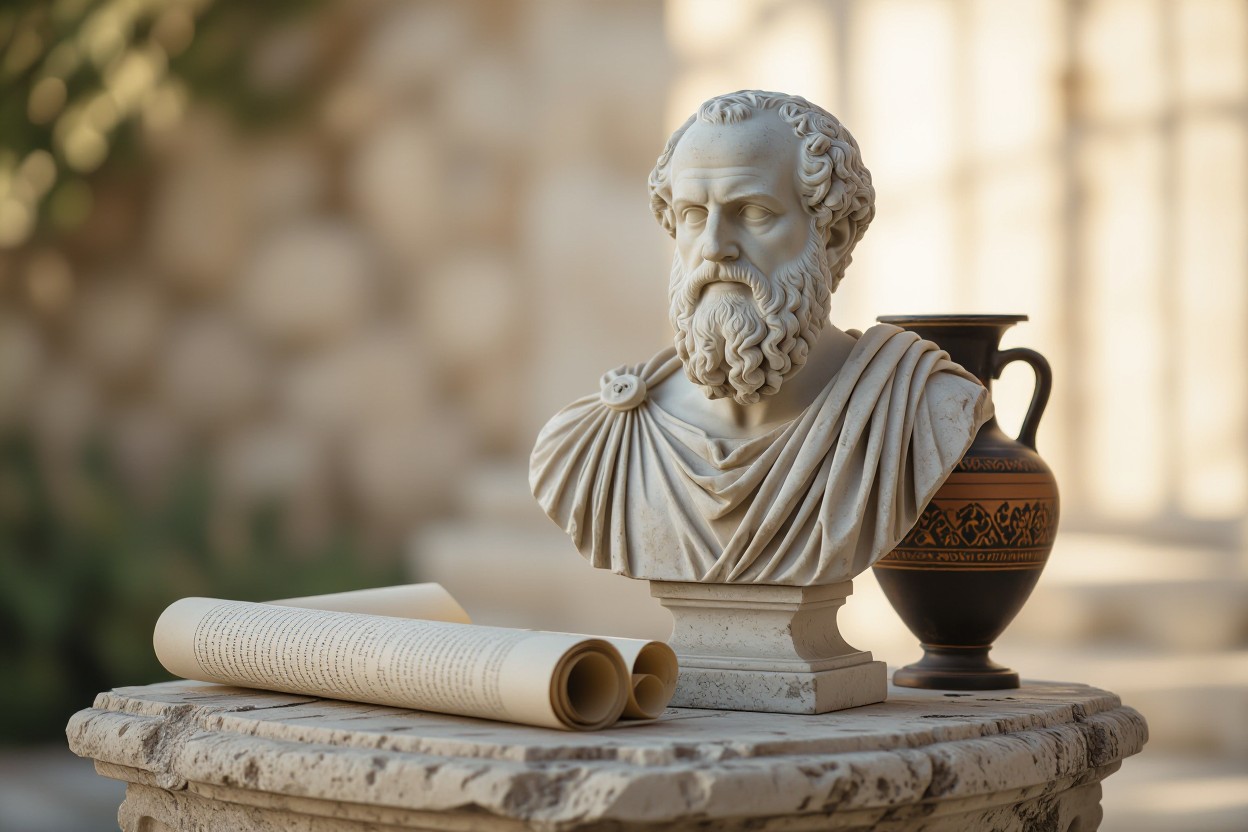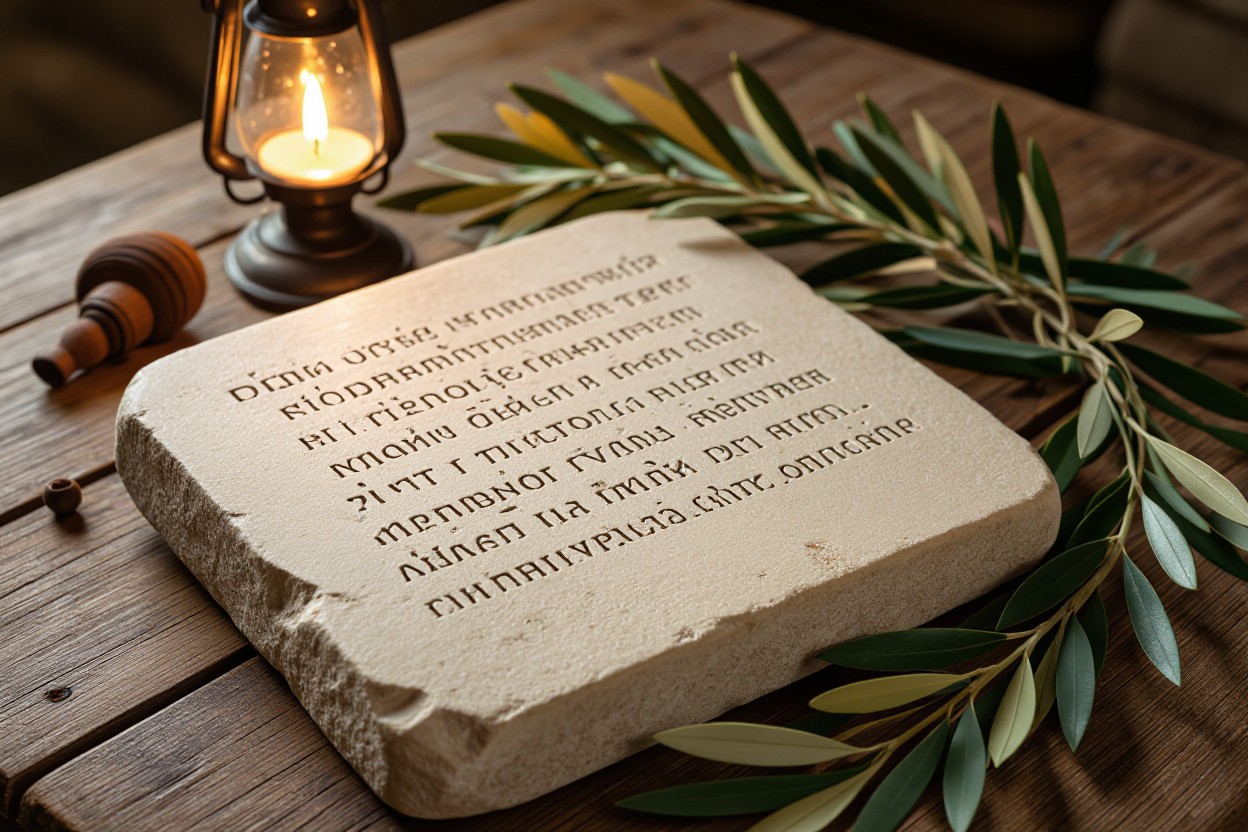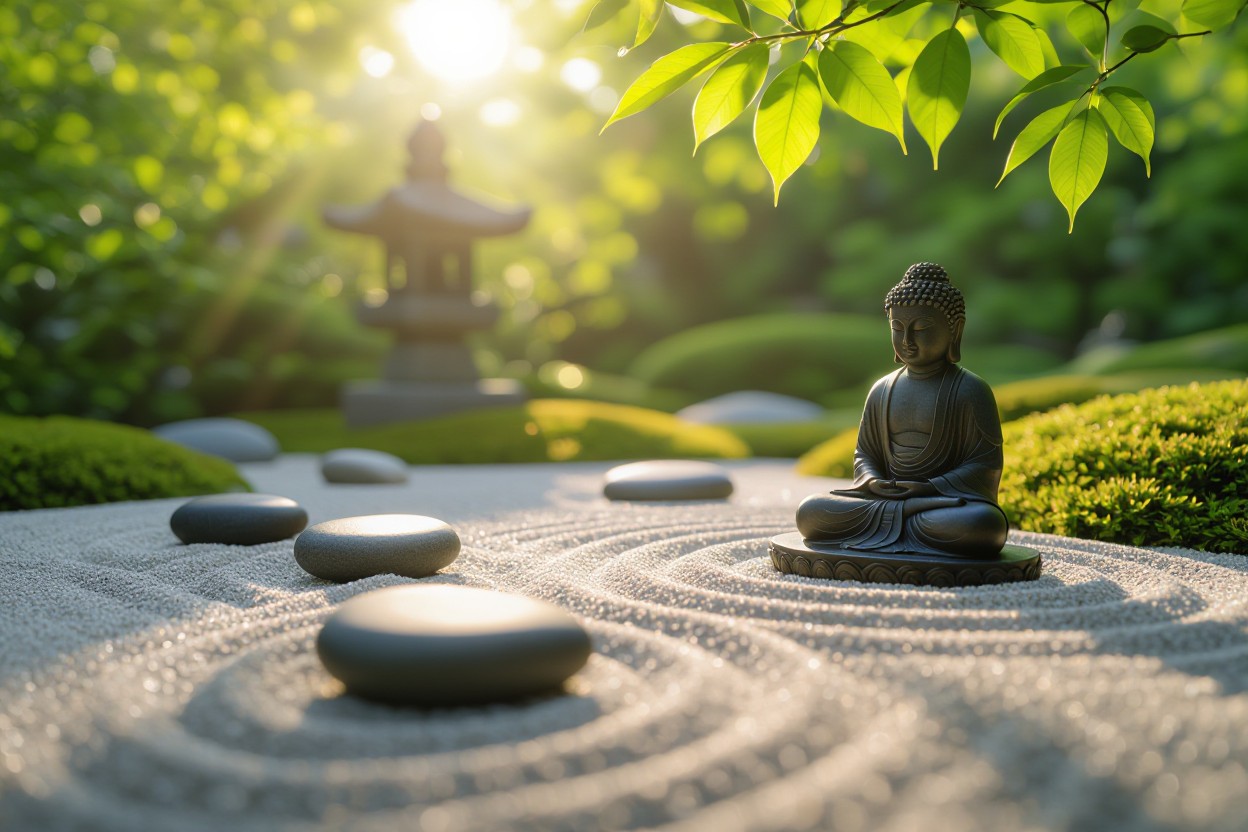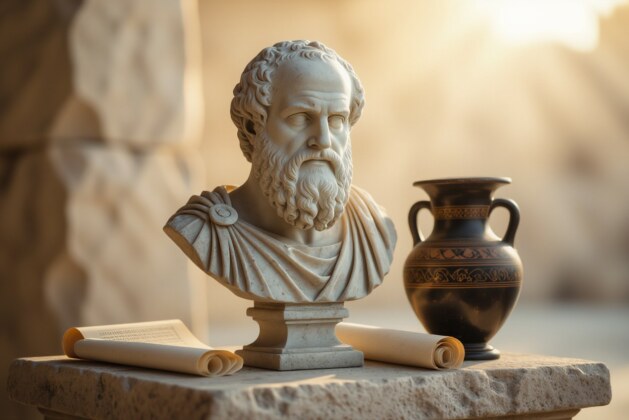Just as you seek a deeper understanding of happiness, I have explored the profound teachings of ancient philosophers who viewed happiness not as fleeting pleasure, but as a lasting state of well-being achieved through virtue and wisdom. Their insights offer timeless guidance that challenges modern assumptions and encourages you to cultivate inner peace and purpose. By embracing their ideas, you can transform your perspective on what truly leads to a fulfilling life, avoiding the dangerous trap of chasing superficial happiness.

Ancient Foundations: Greek Philosophical Perspectives on Happiness
Greek philosophers laid the groundwork for understanding happiness by framing it as a state of well-being achieved through virtue, reason, and balance. Their diverse views converge on the idea that happiness is not fleeting pleasure but a lasting condition shaped by how you live your life. They shifted focus from external goods to internal qualities, helping shape millennia of thought on ethics and human flourishing.
Aristotle’s Eudaimonia: The Ultimate Human Good
Aristotle defined happiness as eudaimonia, often translated as “flourishing” or “living well.” It’s not mere pleasure but an active expression of virtue aligned with reason. You fulfill your potential by engaging in meaningful activities that cultivate moral and intellectual virtues. This holistic view sees happiness as a lifelong pursuit, integrally tied to the choices you make and how well you develop your character.
Epicurus and the Pursuit of Simple Pleasures
Epicurus taught that happiness is attained by seeking simple, sustainable pleasures and avoiding pain, rather than chasing extravagant desires. His philosophy encourages you to cultivate friendships, live modestly, and develop tranquility of mind, which he believed leads to true contentment. His emphasis on limiting desires challenges modern assumptions about happiness derived from material wealth and status.
Beyond advocating pleasure, Epicurus distinguished between kinetic pleasures, which involve active gratification, and katastematic pleasures, a stable state of contentment. The latter, achieved through freedom from pain (aponia) and mental distress (ataraxia), forms the bedrock of his happiness theory. Notably, he discouraged the pursuit of fame or power, arguing these often bring anxiety rather than joy. His garden community exemplified this philosophy, focusing on mutual support, philosophical discussion, and moderation as keys to enduring happiness.
Eastern Insights: Chinese Philosophical Contributions to Contentment
Chinese philosophy offers a rich tapestry of insights into happiness, emphasizing balance, social harmony, and alignment with nature. These ideas often contrast yet complement Greek concepts, focusing less on individual achievement and more on relational and cosmic integration. Ancient Chinese thinkers like Confucius and Laozi approached happiness not as a goal to be conquered but as a natural state arising from virtuous living, proper relationships, and harmony with the Dao—the fundamental principle underlying all existence.
Confucianism: Harmony, Relationships, and Inner Peace
Confucius taught that happiness emerges through filial piety, ethical behavior, and social harmony. The cultivation of virtues such as benevolence (ren) and righteousness (yi) fosters order within the family and society, which in turn nourishes inner peace. I find this perspective valuable because it highlights how your happiness depends on respecting and nurturing your relationships, positioning contentment as a product of communal well-being rather than isolated self-gratification.
Daoism: Flowing with Nature and Spontaneity
Daoism invites you to embrace spontaneity and align yourself with the natural rhythms of life rather than forcing control. Laozi’s Daodejing suggests that serenity arises when you let go of excessive desires and mental rigidity, embodying the principle of wu wei, or effortless action. This approach encourages acceptance of life’s flux, promoting happiness through simplicity and a profound connection to the Dao.
Diving deeper, Daoism’s emphasis on wu wei encourages you to act in harmony with your environment instead of battling against it—a concept backed by modern psychology’s findings on flow states, where effortless engagement boosts well-being. The Daoist ideal manifests in practices like Tai Chi and meditation, which cultivate awareness and embodiment of natural energy. By surrendering control and observing life’s unfolding without resistance, you tap into a timeless source of contentment that avoids futile struggles against reality.

The Stoics: Resilience and the Art of Detachment
The Stoics taught that true happiness arises from mastering your inner world rather than seeking external pleasures. Detachment from uncontrollable events allows you to maintain tranquility amid adversity. The discipline of focusing only on what lies within your power fosters resilience, empowering you to face setbacks without losing equanimity. This approach insists that happiness is not a result of circumstances but rather a deliberate stance toward life’s unchangeable realities.
Seneca’s Lessons on Enduring Hardships
Seneca emphasized the transformative power of hardship, urging you to welcome challenges as opportunities for growth. He argued that adversity strengthens the soul, much like physical exercise builds the body. You are instructed to anticipate misfortunes through mental rehearsals, so when they occur, you meet them with calm resolve. This proactive mindset diminishes fear and enables you to endure suffering without surrendering your peace.
Marcus Aurelius and the Power of Acceptance
Marcus Aurelius modeled how acceptance of fate—amor fati—leads to serenity. His Meditations reveal a practice of reflecting daily on nature’s order and his role within it, helping you align your desires with reality. By embracing whatever happens as necessary, you lessen resistance and achieve a state of inner freedom. This acceptance doesn’t imply passivity but a conscious choice to engage with life as it unfolds.
Marcus Aurelius’s writings contain over 300 reflections on the interplay between fate and free will, showcasing a consistent effort to perceive obstacles as integral parts of life’s design. He advises focusing on your reason to guide responses, recognizing that external events lie beyond control. For example, the emperor faced constant political turmoil yet maintained a calm demeanor, illustrating how detachment from outcomes fosters resilience. By adopting his stance, you learn to interpret setbacks not as misfortunes but as natural occurrences that contribute to your growth, reinforcing a habit of mental composure even amid chaos.

Bridging Time: How Ancient Wisdom Translates to Modern Life
Ancient philosophers offered insights that feel strikingly relevant even amid today’s digital noise. You can find echoes of Epicurean moderation in minimalistic living trends or Stoic detachment in mindfulness practices. These ideas, refined over centuries, help navigate uncertainties of modern life—balancing ambition with contentment. By internalizing their teachings, you learn to prioritize internal peace over external validation, developing resilience and clarity that underpin genuine happiness beyond fleeting pleasures or societal expectations.
Practical Applications in Today’s Fast-Paced World
Applying Stoicism’s control over emotions helps you maintain focus without getting overwhelmed by stress or social media anxieties. The Aristotelian concept of “eudaimonia” encourages purposeful living, guiding your decisions to align with your virtues rather than momentary gratification. Daily journaling, a practice rooted in Seneca’s methods, enables reflection on progress and setbacks, fostering growth and calmness amid constant change. These practices transform philosophical theory into tools that enhance your well-being in a relentless, fast-moving environment.
Common Misconceptions About Ancient Philosophers’ Views
Many believe ancient philosophers advocated detachment so complete it leads to emotional numbness, or that their ideas solely emphasize self-denial and austerity. In truth, figures like Epicurus promoted seeking simple, moderate pleasures, not ascetic suffering. Stoics didn’t reject emotions but trained to recognize and manage them wisely. Mistaking their nuanced approach for rigidity overlooks how their guidance fosters balanced joy grounded in reason and practical action.
Diving deeper, the misconception often arises because modern interpretations sometimes distort or oversimplify these philosophies. For example, Stoicism is frequently conflated with unemotional repression, yet Marcus Aurelius’ writings reveal a sensitivity and profound empathy beneath rational responses. Similarly, the Epicurean ideal is misunderstood as indulgence when it advocates for thoughtful pleasure that secures lasting tranquility. Understanding these subtleties clarifies how ancient thoughts remain not only relevant but empowering pathways to authentic happiness in complex times.
Reflecting on Happiness: A Philosophical Synthesis
Bringing together the diverse insights of ancient philosophers reveals that happiness is neither a fixed state nor a mere fleeting pleasure. It’s a dynamic balance of virtue, reason, and desire, shaped by both internal discipline and external circumstances. Whether it’s Aristotle’s concept of eudaimonia as flourishing through virtue, Epicurus’s focus on simple pleasures and freedom from pain, or Stoicism’s call for resilience and acceptance, all highlight aspects that collectively enrich our understanding of happiness. This synthesis encourages us to explore happiness not in isolation but as a multidimensional pursuit deeply embedded in our daily choices and mindset.
The Interconnectedness of Philosophical Approaches
Ancient philosophies, despite differing in emphasis, share a common thread in their approach to happiness: the integration of ethics, reason, and emotional regulation. For instance, while the Stoics emphasize control over one’s reactions, the Epicureans stress minimizing desires to reduce suffering. Meanwhile, Confucianism adds the dimension of social harmony and proper roles. This interconnectedness hints that no single approach holds all answers; instead, they form a complementary network, guiding you to balance inner virtues with external relationships to achieve sustainable happiness.
Lessons for a Holistic Understanding of Happiness
Exploring these philosophies together shows that happiness is best pursued through a blend of virtuous living, mindful contentment, and social connectedness. Ancient thinkers advise cultivating personal excellence while also fostering meaningful relationships and appreciating simple joys. These elements combined form a robust framework that counters superficial or purely hedonistic views, suggesting that a well-rounded life grounded in ethical behavior and emotional intelligence fosters deeper fulfillment.
To deepen this understanding, consider how Aristotle’s emphasis on habituating virtue complements Epicurus’s suggestion to enjoy modest pleasures, while Stoic teachings about controlling destructive emotions protect you from discontent. Adding Confucian ideals on filial piety and community reminds us that happiness flourishes when individual well-being harmonizes with your role in society. This holistic perspective equips you with practical wisdom that transcends time, aligning your values, actions, and relationships toward a more resilient and authentic happiness.
Conclusion
Summing up, ancient philosophers offered timeless wisdom on happiness, emphasizing that true contentment arises from within. I have learned that Aristotle advocated for a life of virtue and purpose, while Epicurus highlighted simple pleasures and the absence of pain. Stoics like Marcus Aurelius taught me to accept what I cannot change and focus on my own thoughts and actions. By embracing these teachings, you can cultivate a balanced and enduring sense of happiness, grounded not in fleeting external factors but in your character and mindset.





Leave a comment